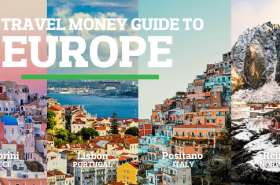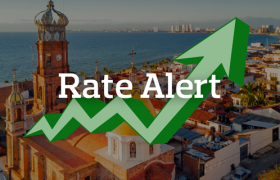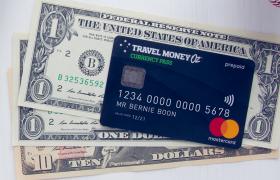Quick Contact

7th February 2017
When you go on holiday you just want to relax but, even for experienced travellers, an overseas trip creates uncertainty as you try to work out the best way to exchange money that could leave you with more spending cash and less fees. Here are the main things to avoid when changing money overseas:
1. Excessive Currency Fees
Some currency exchange bureaus and facilities that offer currency exchange services, such as hotels and resorts,charge hefty fees. In particular, places that may seem convenient like airports or accommodation often charge way above the odds – just as much as the banks! If you change money a few times those fees can quickly add up and eat away at your spending money.
The best way to minimise fees is to be aware of what fees you’ll be charged and use a prepaid travel money card to pay for purchases and use local ATMs to withdraw cash. With a Key to the World Currency Card, you know exactly what fees you’ll be charged at the ATM (depending on your location). Although you should check if an additional fee will be charged per transaction by the ATM operator.
Most importantly, you can minimise fees by avoiding withdrawing cash too often, and by paying shops or restaurants using your Key to the World Currency Card everywhere Mastercard® is accepted.
2. Fluctuating Currency Values
Even if you’re only away for a few days, the exchange rate may fluctuate and big changes can quickly leave you out of pocket or with less spending money. Until recently, unless you changed all your currency into cash before leaving and paid for everything with cash, there was nothing you could do about fluctuating currency values.
Now, pre-paid travel money cards allow you to lock in your rate* for your overseas trip, no matter how long it is. This means you can keep an eye on the exchange rates and pick the best time to load your card before leaving and you know exactly how much you have to spend on your holiday.
You can even set currency alerts, so you know you’re buying at the right time!
3. Risky situations
Financially risky, that is. We have no advice on stunt driving.
Even though you might know better than to attempt exchanging money on the street, it’s still easy to expose yourself to risk when travelling overseas. Scams can negatively impact on your holiday and daily finances if money is stolen from your main credit card or bank account.
You can avoid risky situations by using only secure ATMs at banking institutions or by paying using your travel money card at millions of shops and restaurants everywhere Mastercard® is accepted. Always remember to cover your PIN when withdrawing cash or paying for something and be vigilant about your surroundings.
The benefit of using a pre-paid travel money card, like the Key to the World Currency Card, is that it’s protected by both Chip and PIN and can be suspended at any time if lost or stolen. Even if your pre-paid travel money card is used without authorisation, you won’t be out of pocket for the transactions because you will be protected by MasterCard Zero Liability and can access 24/7 global support to help you set the situation right.
Make the most of your holiday spending money and avoid placing yourself or your money at risk by ordering a pre-paid travel money card before you leave.
*Lock in your exchange rates mean the exchange rate is locked in for the initial load only. The exchange rates for subsequent reloads will be set at the prevailing exchange rate at the time of the transaction.
This blog is provided for information only and does not take into consideration your objectives, financial situation or needs. You should consider whether the information and suggestions contained in any blog entry are appropriate for you, having regard to your own objectives, financial situation and needs. While we take reasonable care in providing the blog, we give no warranties or representations that it is complete or accurate, or is appropriate for you. We are not liable for any loss caused, whether due to negligence or otherwise, arising from use of, or reliance on, the information and/or suggestions contained in this blog.













